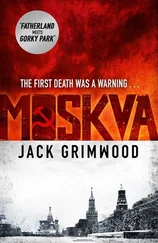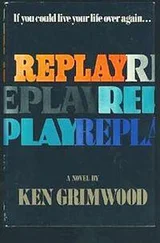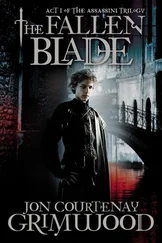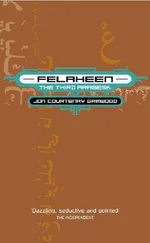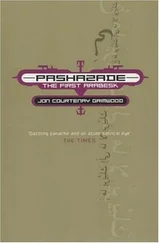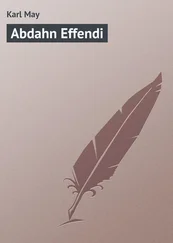“That’s right.”
“A woman spider, bent over backward . . .” Hani flipped to the sheet underneath, nodding to herself; it showed the back, on which the General had written a brief note, plus the word Judecca .
Next Hani rechecked the titles of the books from which the pictures had been ripped.
“Paradiso, Purgatorio, Inferno . . .” The words went down on her sheet of paper one under the other. As an afterthought, Hani numbered them. She’d already found a book called Inferno on the shelves by the door. Sure enough, it had the flyleaf ripped out. Hani was as certain as anything that she’d also find vandalized books called Paradiso and Purgatorio, once she bothered to check.
Only here will you find peace . That was what the General had written on the back of the first picture. Paradise. Only here will you . . . It made sense. Hani copied the words onto her bit of paper and numbered it.
Taking Zara’s spider woman, she turned the weird picture over and wrote down Welcome to limbo . Having numbered this to match Purgatorio, she put At its centre hell is not hot directly underneath and numbered that as well.
Apollyon,Judecca and Cocytus came last.
She thought of drawing different-coloured lines to link the General’s comments to the names of the books, but it didn’t seem necessary. Instead, she drew a big exclamation mark under the list.
“Do you actually know what any of this means?” asked Zara.
“Not yet,” Hani admitted. “But I’ll let you know when I do.” Pushing the paper to one side, Hani scraped back her chair and tiptoed to the door, which she opened a fraction. Sudanese soldiers were coming and going in the hall. Mostly they seemed to be Raf’s guard. “The German’s arriving,” she told Zara. “He looks cross.”
Zara peered over Hani’s shoulder at the young German ambassador. “No,” she said, “what he looks is nervous . . .” Just then, Khartoum came into the hall and bowed to the visitor, ushering him through an open door. “That’s not the audience chamber,” said Zara.
“No,” said Hani, “it’s a waiting room. Now he’ll look cross.”
“Coffee,” Raf suggested and the German youth in front of him winced; as Raf suspected he might. According to his file, the ambassador from Berlin loathed the stuff.
“In Iskandryia it’s traditional,” said Raf.
“Isn’t everything?” The ambassador’s voice was resigned. According to Koenig Pasha’s notes His Excellency Graf von Bismarck was nineteen. He looked younger, fourteen going on twelve, with the faintest trace of a blond moustache and long hair that flopped over one eye. The unflopped eye, startlingly blue, stared nervously at Raf whenever the ambassador thought Raf wasn’t looking.
Iskandryia was one of the most career-destroying posts on offer, particularly for someone who hated intrigue and coffee. And from what Raf could gather, Ernst von Bismarck had taken it only because his other alternative was marriage to some Schleswig-Holstein. It seemed the Graf wasn’t the marrying type.
“If not coffee,” said Raf, voice suddenly sympathetic, “then what?”
“Orange juice . . . If that’s possible.”
A clap of Raf’s hands brought not Khartoum but Hani. She’d changed from jeans into a dress at least one size too big. Unfortunately, she’d retained the silver Nike trainers.
“I’m Hani al-Mansur,” Hani announced, thrusting her hand at the startled ambassador. “He’s my uncle.”
“Where’s . . . ?” Raf began.
“Doing something,” said Hani firmly. “Whatever you want—I’ll get it.”
When the orange juice arrived it came on a tray complete with a silver bowl of pistachios, soft-skinned and bright green on the inside, two small brass pipes and a fingertip of sticky resin.
The German ambassador and Raf waited while Hani withdrew. Only then did Raf notice a note folded neatly on the tray under his glass.
“A sweet child,” said the Graf.
Raf reread Hani’s scrawl, nodded doubtfully and pushed the note deep into his pocket. “Endlessly surprising,” he said and changed the subject. “You demanded a meeting . . . ?”
It seemed preposterous to call what was happening an audience, so Raf didn’t.
“Berlin wants . . .”
“I’m sure it does,” said Raf. “But first explain why your intelligence service has been waging war against Hamzah Effendi.” He stared at the boy, who put down his glass and went deep red.
Personally, Raf lacked the capacity for visible embarrassment, but then he’d had a lung deflated when he was six and a very minor blood-supply nerve to his face snipped where it ran between his second and third ribs. The surgeon went after the nerve through a tiny incision in his armpit.
“They haven’t . . .”
“Are you telling me the man pulled out of Lake Mareotis wasn’t Thiergarten . . . ?”
“You don’t know that he killed the first girl,” Ernst von B said hotly. “Whatever you’ve been saying.”
“What about the attack on the Casino Quitrimala?” said Raf. “Are you telling me the Thiergarten didn’t organize that?”
“That had nothing to do with us.”
“And I’m supposed to believe this?”
“You have my word,” Graf von Bismarck said stiffly. He looked as if he was getting ready to cry.
“But the man who died in the fire was German?”
The nod was slight enough to be almost invisible.
“Okay,” said Raf. “Just suppose some of your men have been turned . . . Who corrupted them?”
Needless to say, the Graf had no idea, although he immediately suggested Paris because Berlin always blamed Paris for everything.
“And the bomb?”
“My intelligence officers suggest the mujahadeen.” Von Bismarck looked hesitant. “But I’m not convinced the rebels have that level of sophistication.”
Raf reached behind his chair for a cardboard box and pulled out a thin tube the length of his arm, attached to a small wooden base. “Sophisticated it’s not,” he said, voice grim. “Effective, yes. You can buy most of the components from the nearest souk.”
Circling the thin tube he held, but not touching it, was a spiral of bare copper wire, with a metal clothes hanger looped at the top, like a makeshift replacement for a vandalized car aerial.
The object looked like something from Sculpture 101 at St. Mark’s.
“Detonator,” said Raf, pointing to a cigarette-sized tube rammed into the underside of the weird exhibit. Copper wire, aluminium stuffed with cheap explosive, aerial loop, battery pack.
“To create a magnetic field between copper coil and tube,” Raf added, when the German ambassador looked blank. He didn’t mention that he’d spent the last few minutes before the Graf arrived checking a pencil-sketched schematic for a flux generator, as e-bombs were apparently called.
“Detonate the charge,” said Raf.
“. . . and the whole thing blows up.” Graf von Bismarck finished the sentence for him.
“You got it.” Raf took a brass pipe from the tray and gave it to the young German, who absentmindedly inhaled.
“As it blows,” said Raf, “the blast rips up the tube at six thousand metres a second or something, the exploding tube flares out to touch the wire and power gets diverted into the undamaged coil ahead . . .”
Absolute incomprehension closed down the Graf’s boyish face.
“You didn’t do physics, did you?”
The German shook his head. “It wasn’t an option. I took philosophy, politics and history at Heidelberg.”
Yeah, exactly as recorded in Koenig Pasha’s file.
Читать дальше

